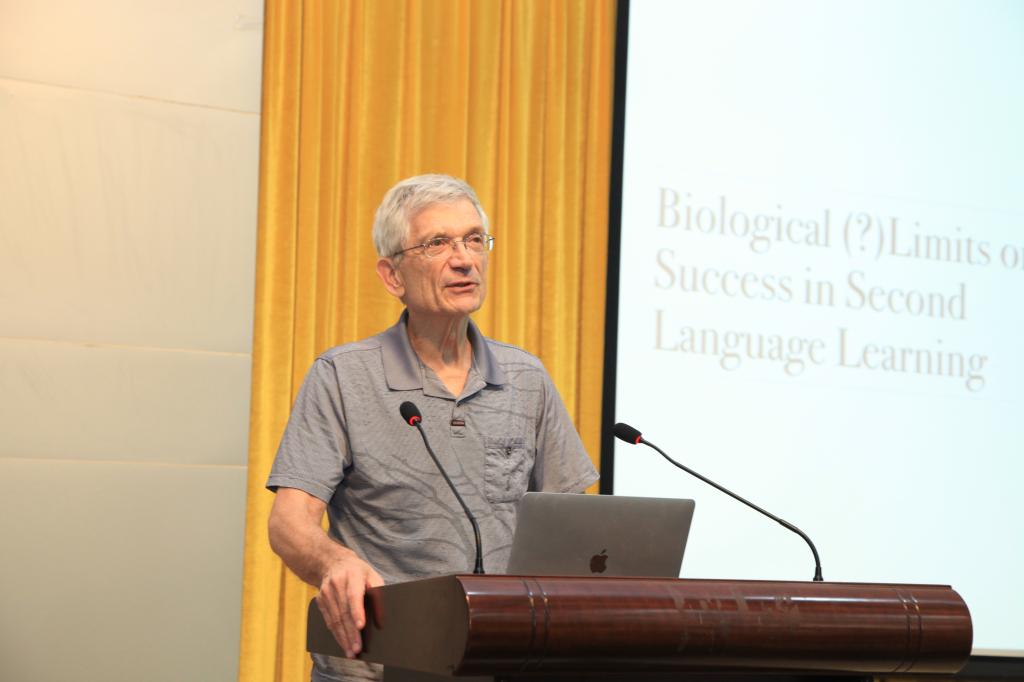On the morning of May 6, Prof. Brian MacWhinney, a well-known cognitivepsychologist, presented a keynote speech named “Biological (?) Limits onSuccess in Second Language Learning” at the 2017 International PhD Forum onLinguistics and Applied Linguistics organized by the Center for Linguistics and Applied Linguistcs, Guangdong University of Foreign Studies. The speech was chaired by Prof. Dong Yanping, director of the Bilingual Cognition andDevelopment Lab.
Tos tart with, Prof. MacWhinney pointed out that the mechanism of critical periodsin language learning was among the 125 big research questions listed by the Sciencemagazine. Addictionally, many SLA researchers had accepted the critical periodhypothesis (CPH). The CPH therefore seemed to be an obvious fact. Nevertheless,Prof. MacWhinney contended that the hypothesis was still open to discussionsfor the following findings: 1) some adults could still acquire L2 fully; 2)there was no sharp drop-off in the language learning curve; 3) children couldcompletely lose their L1; 4) adults could maintain their L1 without using it.Perhaps the most challenging counterpoint was that the mechanism for CPH wasstill elusive. Theoretically speaking, the question of CPH had been addressedfrom the perspectives of Chomsky’s UG, Lenneberg’s theory of lateralization andmyelination, Pinker’s metabolic decline theory, Ullman’s proposition about lossof automaticity and others. Prof. MacWhinney illustrated problems with thesetheories in accounting for CPH one by one. To solve these problems, hedeveloped the Unified Competition Model (UCM), a dynamic system theoryfeaturing Darwinism, hierarchical structure and timeframes. According to theUCM, there were risks and supports during the courses of L1 and L2 acquisition.He then elaborated on the four risk processes of entrenchment, transfer,overanalysis, isolation and their corresponding support processes -- resonance,decoupling, proceduralization and participation. Considering these risks andprotective factors, he concluded that L2 learning relied on the same processesas L1 learning with a different configuration. Therefore, the AoA (age ofarrival) effect was dynamic and emergent in nature. Some language levels likearticulation were more sensitive to the influence of age, whereas other levelslike syntax and lexicon were unconstrained by the limits of age.
Thetalk was enlightening and filled with Prof. MacWhinney’s insightful and humorousremarks. After the talk, he answered questions from the audience.

